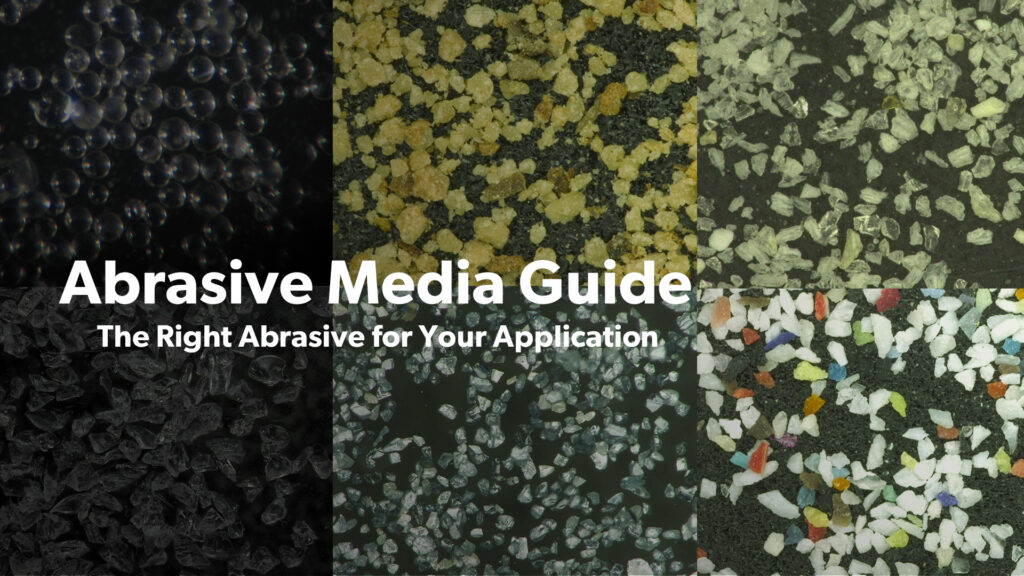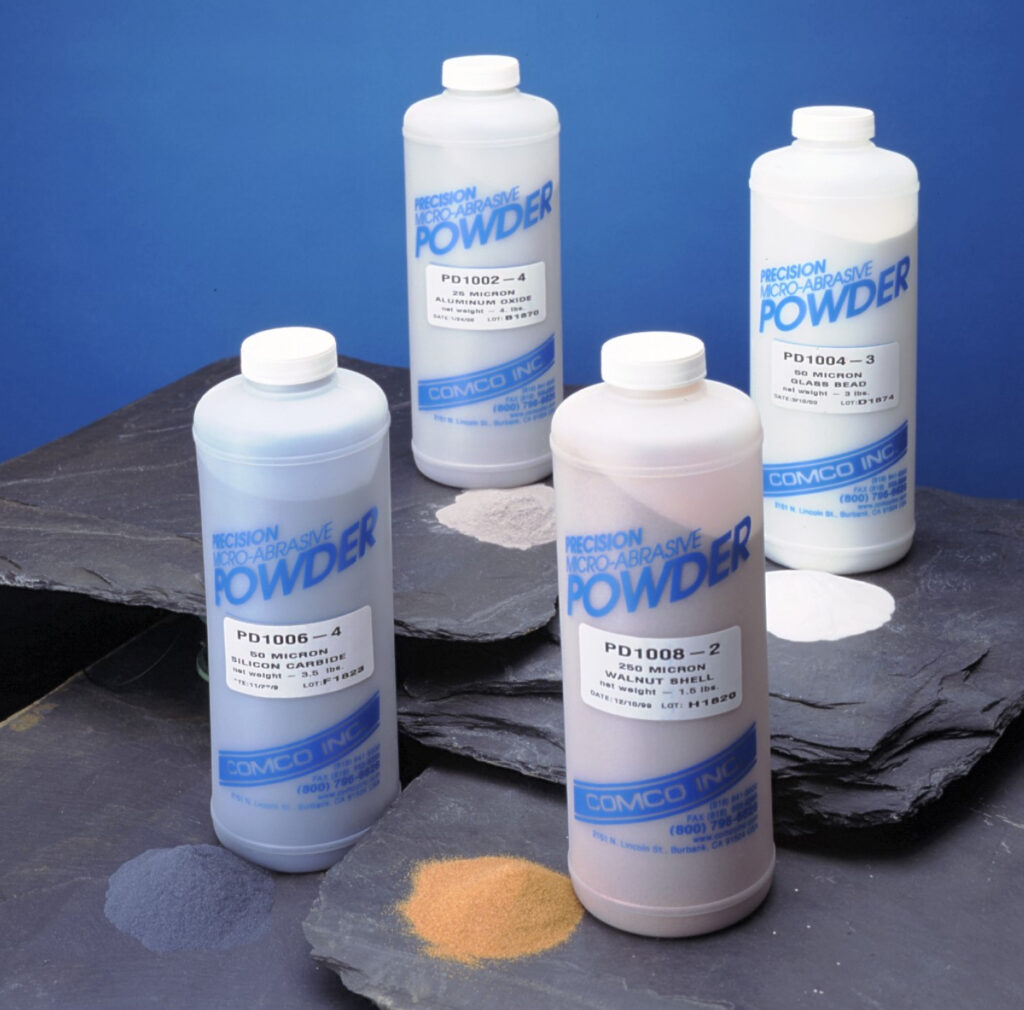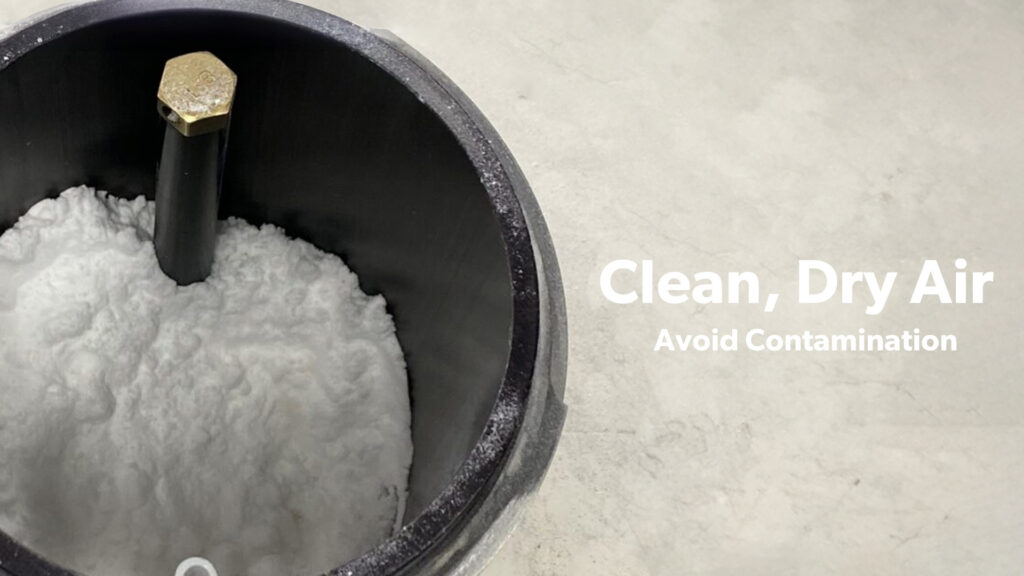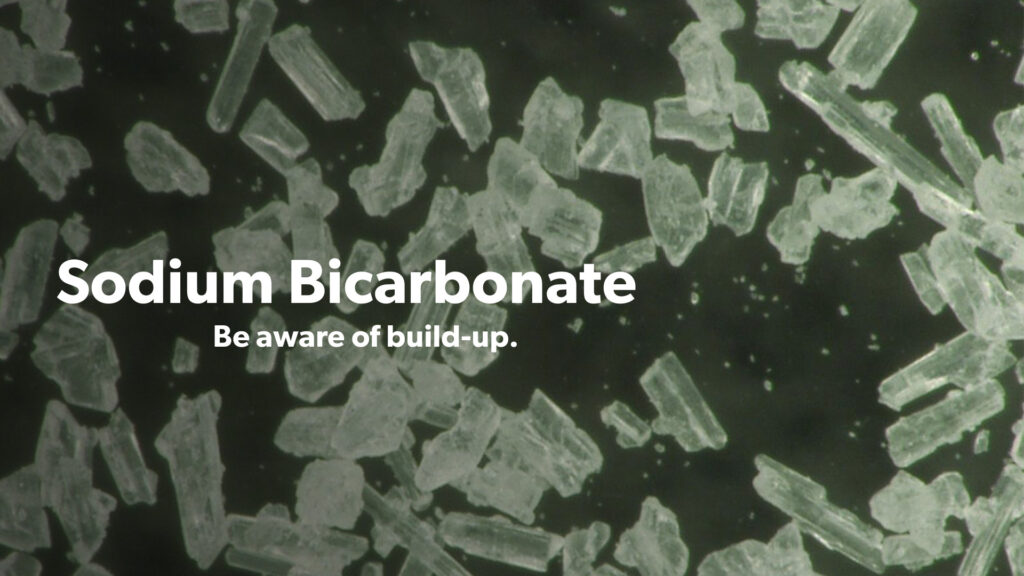Process Optimization
Why Abrasive Quality Matters
One of the keys to efficient MicroBlasting is using quality abrasives. In the past, we’ve discussed why you shouldn’t recycle used abrasive – this month, let’s dive into what kind of precision abrasives you should be using.
Why are Comco’s Abrasives Superior?
There are three abrasive variables crucial to keep consistent for best results:
- Composition
- Size
- Purity
We have strict controls in place to keep our precision abrasives consistent and moisture-free so that you can have repeatable results.
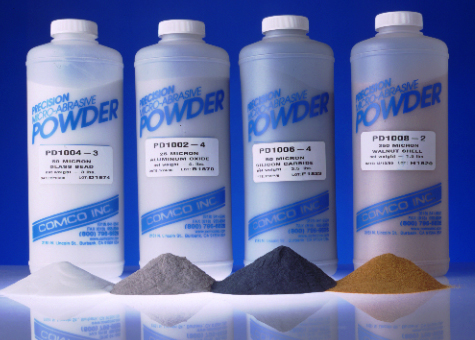
Composition
Consistent results start by using a carefully-sized precision abrasive free of impurities. For example, a bottle of Comco Sodium Bicarbonate is not the same as your supermarket baking soda or industrial abrasive supply equivalent. MicroBlasting works on a micro-scale, so it requires a precision abrasive that maintains a tight classification centered within a narrow distribution curve. Any variance in particle size or chemical composition impacts the surface of the targeted part.
It is impossible to determine abrasive performance by merely looking at it, so we regularly test our abrasive media to allow us to know precisely how it will affect your part’s surface. We use proprietary systems and tools to maintain the purity of all our abrasives. Our inspection process looks at specific characteristics like particle size distribution and moisture content, and we track each lot of abrasives
Particle Size
Why do we measure in microns (and not use grit sizing)? For industrial applications, the most common way to size abrasives is grit or mesh sizing. These methods determine particle size by how they pass through screens. Typical grit sizing will identify an amount of abrasive that can pass through a given screen size. For example, with 80 grit abrasives, no material stays on a 50 mesh screen, up to 25% stays on a 70 mesh screen, 65% to 100% of the material stays on a 100 mesh screen and up to 100% stays on a 120 mesh screen. The particle distribution curve is fairly wide with this method. As the size of the abrasive gets finer, mesh measurement systems becomes less accurate and effective. This is why at Comco, we measure our precision abrasives in microns. In this measurement scheme, we are conducting a direct measurement of the particle and the distribution of them. As with any normal population distribution, they will be centered around the mean and then fall off towards the tails. For our 50 micron material, the mean particle size is controlled to be centered around 50 microns. From there we put limits on both the coarse and fine tails to keep a tight particle size spread.
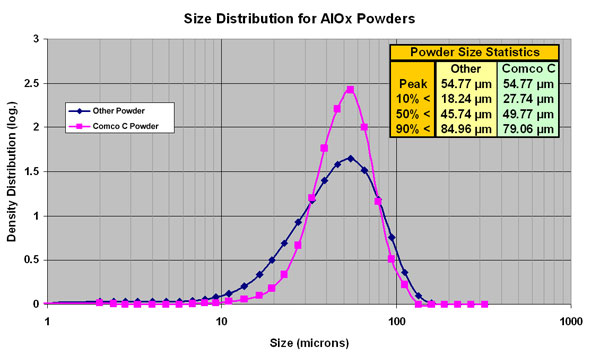
Purity
Precision abrasives that are free of impurities (small bits of foreign material and moisture) produce superior results. Comco maintains strict quality control during every phase of powder processing, ensuring each lot of precision abrasive meets our high expectations.
At our processing facility, we start with a quality raw feed and further refine the media from there. Our process is designed to identify and detect any foreign contaminants or moisture in the media and remove them. This is because contamination can have significant impacts on how well the abrasive performs. For example, if there are stray particles of iron in sodium bicarbonate it may damage a surface instead of just removing a coating. Angular particles in glass beads will matte the finish rather than simply peening it.
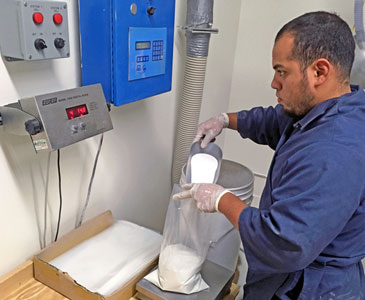
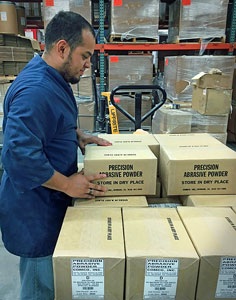
Moisture is probably the most significant contaminant that we face. While this is not normally an issue for large, industrial abrasives it can be significantly harmful to micron-sized particles. As particle size increases, the ratio between volume and surface area increases. With this increased surface area small amounts of moisture can act like glue, causing particles to lump together. Uniform abrasive feed is impossible when this happens, causing variations in abrasive flow, or worse, clog a blaster.
To avoid contamination, we employ proper moisture controls during every step of the manufacturing process. Our precision abrasive is packaged in heat-sealed bags and containers for protection against any contamination or moisture during shipment and storage. Our abrasives come in multiple sizes, from 1-quart bottles to larger cartons with individually sealed packages.
Applications Lab
When processing your sample parts in our Applications Lab, we only use our precision abrasives. The best way to ensure that you are able to duplicate our work in the applications lab is to use our precision abrasive. Our consistent sizing means that you will get the same results in your process that we demonstrate in the lab.

